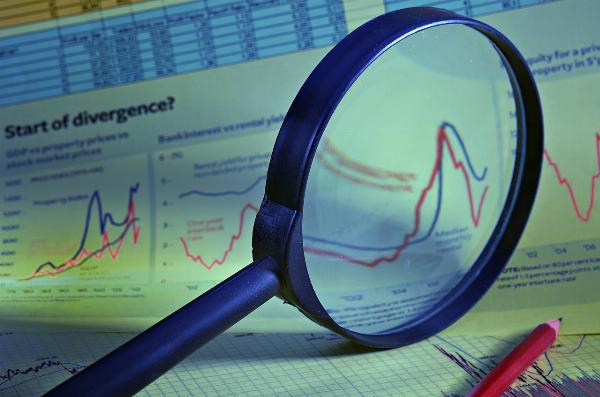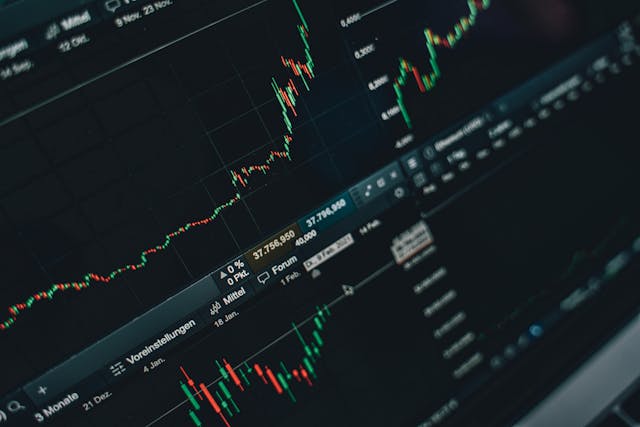How to Conduct Ethical Investment Research?

Strong 8k brings an ultra-HD IPTV experience to your living room and your pocket.
Investing your hard-earned money is a big decision. You want to see good returns, sure, but wouldn't it be awesome if your investments also made a positive impact on the world? That's where ethical investing comes in. It's about putting your money behind companies that align with your values, whether it's environmental responsibility, social justice, or sustainable practices. Start your trading journey by investing in a reliable trading platform such as kikit-ai.com/.
Mission Accepted: Understanding Your Values
Before diving in, figure out what matters most to you. Do you care deeply about animal welfare? Is clean energy a priority? Maybe you want to invest in companies that promote diversity and inclusion. Having a clear idea of your values will help you narrow down which companies deserve a spot in your portfolio.
Research HQ: Cracking the Code
Once you know your values, it's time to become a research detective! Here are some key areas to investigate:
- Environmental Impact: Does the company have a plan to reduce carbon emissions and waste?
- Social Responsibility: How does the company treat its employees? Does it support fair labor practices and diversity initiatives?
- Governance: Is the company transparent about its leadership and decision-making? Does it avoid unethical practices like bribery or corruption?
Information Arsenal: Where to Look?
There's a treasure trove of information out there, you just gotta know where to dig. Here are some handy resources:
- Company Websites: Most companies have a sustainability or CSR (Corporate Social Responsibility) section on their website. Check it out to see their commitments and goals.
- Independent Ratings: Organizations like Morningstar and MSCI ESG rate companies on their environmental, social, and governance practices. These ratings can be a great starting point for your research.
- News Articles and Reports: Stay in the loop by reading news articles and reports about companies' ethical practices. Did a company get caught in a greenwashing scandal? You'll want to know!
Beyond the Reports: Seeing Through Greenwashing
Not all companies that claim to be ethical are created equal. Watch out for "greenwashing" – where companies make misleading claims about their sustainability efforts. Here's how to spot it:
- Vague Statements: Companies that use fluffy language without concrete details might be trying to hide something.
- Focus on Awards: Winning a single sustainability award doesn't guarantee a company is truly ethical. Dig deeper!
- Lack of Transparency: If a company makes it hard to find information about their practices, that's a red flag.
Building Your Ethical Portfolio: It's All About Balance
Remember, ethical investing isn't about finding perfect companies. It's about finding companies that are making a genuine effort to do good. There will always be some trade-offs. Maybe a company you like uses some recycled materials but still has a long way to go on its carbon footprint. It's up to you to decide what compromises you're comfortable with.
Investing for a Better Future: You Have the Power!
Ethical investing isn't just about feeling good, it can also be a smart financial move. Studies have shown that companies with strong ESG practices can outperform their less ethical counterparts in the long run. So, you can grow your wealth while making a positive impact – that's a win-win!
The ethical investing landscape is constantly evolving. New resources and rating agencies are popping up all the time. Don't be afraid to explore different tools and stay up-to-date on the latest trends. There's a whole community of ethical investors out there, so connect with online forums or attend industry events. Remember, knowledge is power, and the more you learn, the more confident you'll feel about building an ethical portfolio that reflects your values and fuels a positive future.
Remember, investing inherently carries risk. The market can be unpredictable, and even ethical companies can experience downturns. This is why consulting with a qualified financial advisor is a crucial step. A financial advisor can act as your personal sherpa, guiding you through the sometimes treacherous terrain of the investment landscape. They can help you assess your risk tolerance, explore a diverse range of investment options aligned with your ethical and financial goals, and craft a personalized plan for building a secure financial future. Don't hesitate to seek professional guidance – their expertise can help you make informed decisions, navigate market fluctuations with more confidence, and ensure your ethical investments are also financially sound. Remember, investing ethically and investing wisely go hand in hand. Let's build a future that's both sustainable and prosperous.
Note: IndiBlogHub features both user-submitted and editorial content. We do not verify third-party contributions. Read our Disclaimer and Privacy Policyfor details.







